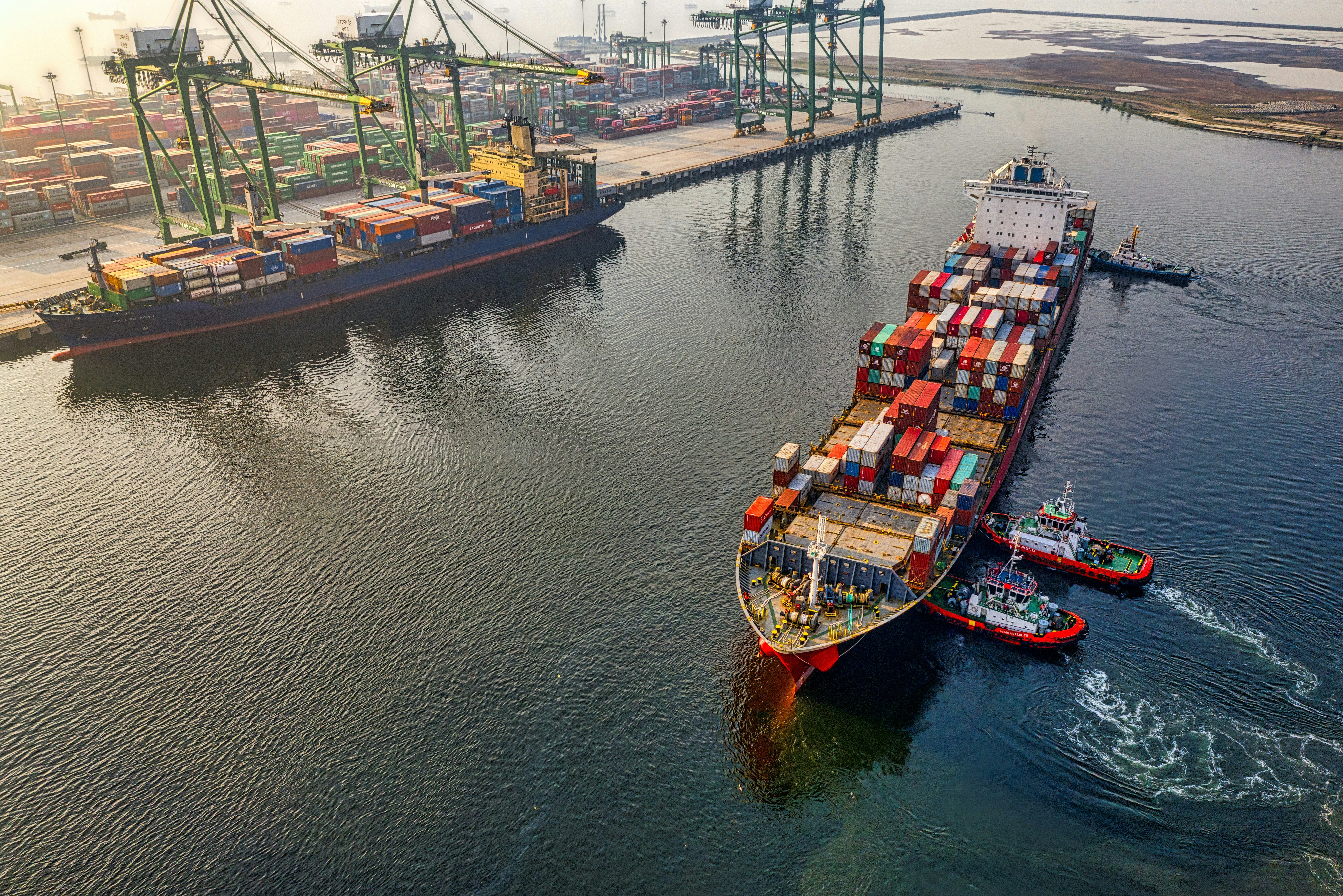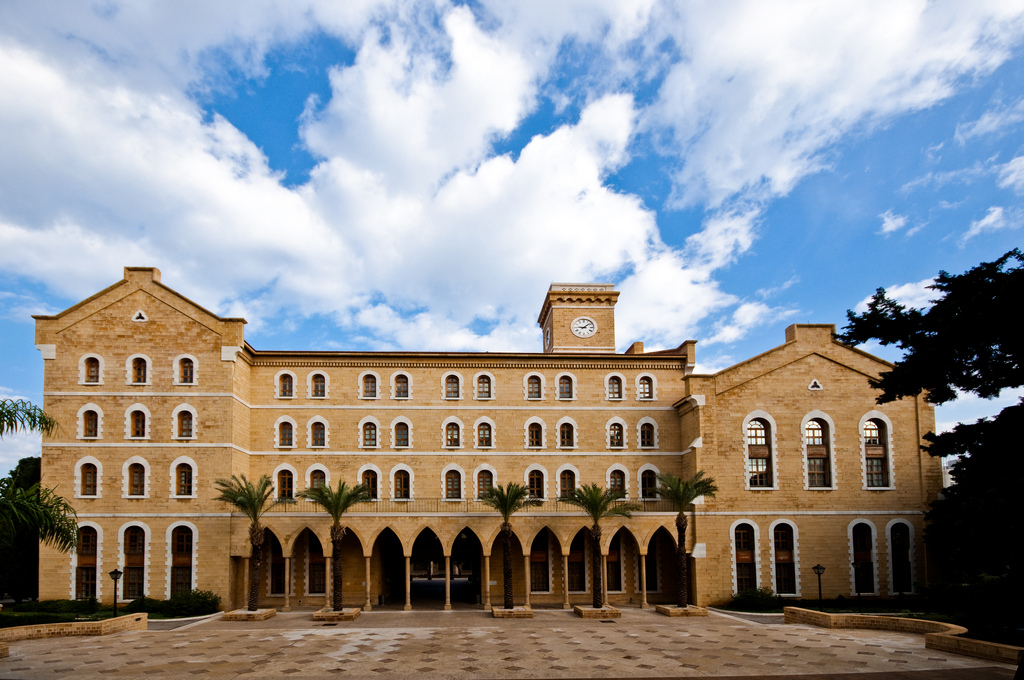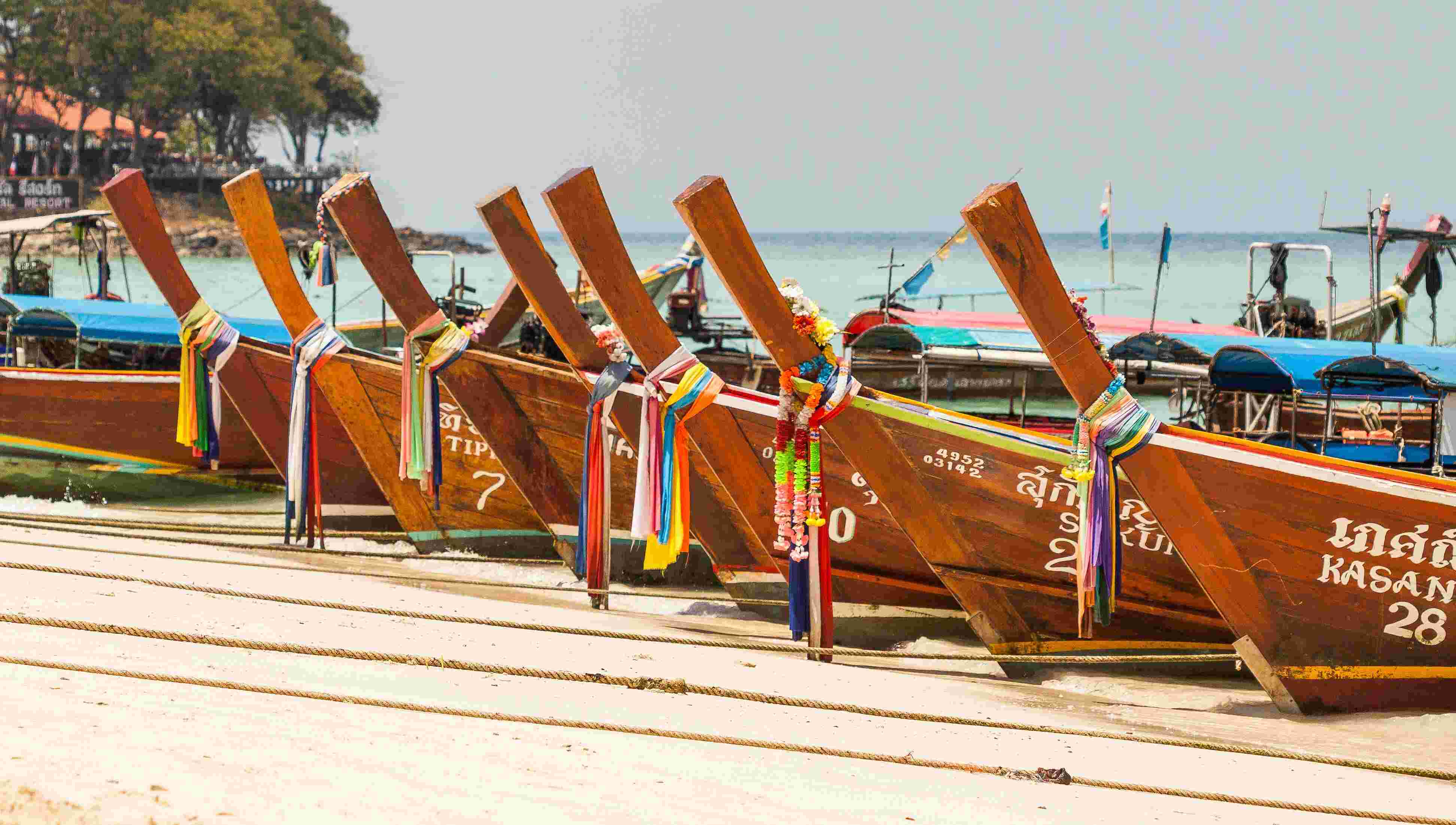Search results: 152
Short Courses 2020

UNCTAD is pleased to announce six short courses in 2020 (due to the global pandemic, three were implemented)

UNCTAD is pleased to announce six short courses in 2020 (due to the global pandemic, three were implemented)

The UNCTAD secretariat is pleased to announce that the next regional course on key issues on the international economic agenda, which is designed for economies in Asia and the Pacific, will be hosted by the Singapore Cooperation Programme, from 14 November to 2 December 2011.
The course will focus on the links between trade, investment, finance and development, including in the context of international trade negotiations. Its aims are as follows:
(a) Enhance understanding of the relationship between these areas and their links to country development strategies; (b) Provide participants with the knowledge and skills necessary for designing and implementing trade and development policies, as well as for trade negotiations, corresponding to the needs and interests of their countries.
The course syllabus will draw on the perspective of UNCTAD, its analytical work and lessons learned from its technical cooperation activities and will be enriched by the competence and expertise of representatives of the Economic and Social Commission for Asia and the Pacific. Experts from Singapore will also share their national experience in promoting and managing trade, investment, finance and development.
The course is aimed primarily at mid-level government officials in ministries and institutions who are involved in the formulation and implementation of national trade and development policies, and who deal with issues relating to trade, investment and finance, and development. As appropriate, and depending on the availability of space, other applicants, such as university academics, may be considered.

The UNCTAD secretariat is pleased to announce that the next regional course on key issues on the international economic agenda, which is designed for economies in Asia and the Pacific, will be hosted by the Singapore Cooperation Programme, from 11 to 29 November 2013.
The course will focus on the links between trade, investment, finance and development, including in the context of international trade negotiations. Its aims are as follows:
(a) Enhance understanding of the relationship between these areas and their links to country development strategies; (b) Provide participants with the knowledge and skills necessary for designing and implementing trade and development policies, as well as for trade negotiations, corresponding to the needs and interests of their countries.
The course syllabus will draw on the perspective of UNCTAD, its analytical work and lessons learned from its technical cooperation activities and will be enriched by the competence and expertise of representatives of the Economic and Social Commission for Asia and the Pacific. Experts from Singapore will also share their national experience in promoting and managing trade, investment, finance and development.
The course is aimed primarily at mid-level government officials in ministries and institutions who are involved in the formulation and implementation of national trade and development policies, and who deal with issues relating to trade, investment and finance, and development. As appropriate, and depending on the availability of space, other applicants, such as university academics, may be considered.

The UNCTAD secretariat is pleased to announce that the next regional course on key issues on the international economic agenda, which is designed for economies in Asia and the Pacific, will be hosted by the Singapore Cooperation Programme, from 09 to 27 November 2015.
The course will focus on the links between trade, investment, finance and development, including in the context of international trade negotiations. Its aims are as follows:
(a) Enhance understanding of the relationship between these areas and their links to country development strategies; (b) Provide participants with the knowledge and skills necessary for designing and implementing trade and development policies, as well as for trade negotiations, corresponding to the needs and interests of their countries.
The course syllabus will draw on the perspective of UNCTAD, its analytical work and lessons learned from its technical cooperation activities and will be enriched by the competence and expertise of representatives of the Economic and Social Commission for Asia and the Pacific. Experts from Singapore will also share their national experience in promoting and managing trade, investment, finance and development.
The course is aimed primarily at mid-level government officials in ministries and institutions who are involved in the formulation and implementation of national trade and development policies, and who deal with issues relating to trade, investment and finance, and development. As appropriate, and depending on the availability of space, other applicants, such as university academics, may be considered.

The UNCTAD secretariat is pleased to announce that the next regional course on key issues on the international economic agenda, which is designed for economies in Asia and the Pacific, will be hosted by the Singapore Cooperation Programme, from 13 November to 1 December 2017.
The course will focus on the links between trade, investment, finance and development, including in the context of international trade negotiations. Its aims are as follows:
(a) Enhance understanding of the relationship between these areas and their links to country development strategies; (b) Provide participants with the knowledge and skills necessary for designing and implementing trade and development policies, as well as for trade negotiations, corresponding to the needs and interests of their countries.
The course syllabus will draw on the perspective of UNCTAD, its analytical work and lessons learned from its technical cooperation activities and will be enriched by the competence and expertise of representatives of the Economic and Social Commission for Asia and the Pacific. Experts from Singapore will also share their national experience in promoting and managing trade, investment, finance and development.
The course is aimed primarily at mid-level government officials in ministries and institutions who are involved in the formulation and implementation of national trade and development policies, and who deal with issues relating to trade, investment and finance, and development. As appropriate, and depending on the availability of space, other applicants, such as university academics, may be considered.

The UNCTAD secretariat is pleased to announce that the next regional course on key issues on the international economic agenda, which is designed for economies in Asia and the Pacific, will be hosted by the Singapore Cooperation Programme, from 18 to 29 November 2019.
The course will focus on the links between trade, investment, finance and development, including in the context of international trade negotiations. Its aims are as follows:
(a) Enhance understanding of the relationship between these areas and their links to country development strategies; (b) Provide participants with the knowledge and skills necessary for designing and implementing trade and development policies, as well as for trade negotiations, corresponding to the needs and interests of their countries.
The course syllabus will draw on the perspective of UNCTAD, its analytical work and lessons learned from its technical cooperation activities and will be enriched by the competence and expertise of representatives of the Economic and Social Commission for Asia and the Pacific. Experts from Singapore will also share their national experience in promoting and managing trade, investment, finance and development.
The course is aimed primarily at mid-level government officials in ministries and institutions who are involved in the formulation and implementation of national trade and development policies, and who deal with issues relating to trade, investment and finance, and development. As appropriate, and depending on the availability of space, other applicants, such as university academics, may be considered.

Effective policy action requires a shared understanding among a wide number of stakeholders of what is STI policy and how innovation emerges and contributes to economic growth and sustainable development. The objective of this course is to build capacity among policymakers and stakeholders to better understand their science, technology and innovation (STI) ecosystems and thus design and implement successful STI policies.
The fall/winter session will commence on 1 October 2025. To sign up for this session please proceed to our sign-up page.

As part of the UN Development Account project “Sustainable Smart Ports for African Countries, including Small Island Developing States”, UNCTAD is organizing an online capacity-building course on sustainable smart ports (SSP) for Africa.
This course builds on previous regional workshops delivered under the project, including how to design efficient energy management systems and how to advance the electrification of port equipment. It seeks to equip key stakeholders in Africa’s port sector—including port authorities, terminal operators, government agencies, and private sector actors—with the technical expertise and hands-on capabilities needed to support sustainable port development.
The training will guide participants through the core building blocks of SSP development: It offers targeted guidance on planning and implementing SSP strategies, beginning with an introduction to key concepts, reform principles, and the UNCTAD methodology for assessing a port’s SSP status. Participants will also explore energy efficiency measures through ISO 50001-based energy management systems and develop practical approaches for the electrification of port equipment, supporting the transition toward low-emission, energy-efficient operations.
The course will be delivered through four online sessions, each lasting one hour. Sessions will blend theoretical input with practical case studies, ensuring that participants gain both conceptual understanding and actionable skills. The programme will also include interactive exercises, enabling participants to collaboratively design and refine roadmaps for implementing SSPs in their respective contexts.
The objective of this course is to strengthen the capacities of ports in Africa in building sustainable smart ports (SSP) that promote sustainable energy and technology-driven solutions.
MODULE 1
Introduction to SSP
SSP definition, concepts and best practices
Key principles and policy areas to advance SSP reforms
UNCTAD methodology to assess a port's SSP status
MODULE 2
Energy efficiency and ISO 50001 for ports
Energy management system based on ISO 50001
Port application of the standard
MODULE 3
Port equipment electrification
Guidelines on the electrification of port equipment
Action plan for electrifying port equipment

orem ipsum is a pseudo-Latin text used in web design, typography, layout, and printing in place of English to emphasise design elements over content. It's also called placeholder (or filler) text. It's a convenient tool for mock-ups. It helps to outline the visual elements of a document or presentation, eg typography, font, or layout. Lorem ipsum is mostly a part of a Latin text by the classical author and philosopher Cicero. Its words and letters have been changed by addition or removal, so to deliberately render its content nonsensical; it's not genuine, correct, or comprehensible Latin anymore. While lorem ipsum's still resembles classical Latin, it actually has no meaning whatsoever. As Cicero's text doesn't contain the letters K, W, or Z, alien to latin, these, and others are often inserted randomly to mimic the typographic appearence of European languages, as are digraphs not to be found in the

UNCTAD's Regional Course on Key issues on the International Economic Agenda for UNCTAD member States in the Asia and Pacific region will be held at the United Nations Economic and Social Commission for Asia and the Pacific in Bangkok, Thailand, 18 - 29 November 2002.
The course is aimed at government officers (director or deputy-director level) in ministries of trade, industry or commerce, who are involved in the formulation and implementation of national trade and development policies. Academics from research institutions and universities active in international economic issues are also encouraged to apply.
The course draws on UNCTAD's perspectives and expertise, and aims to enhance an understanding of UNCTAD's analytical work, as well as the lessons drawn from UNCTAD's technical cooperation activities. The content and the approaches of the course will also draw on the competence and expertise of UNESCAP and other regional experts.

UNCTAD's Regional Course on Key issues on the International Economic Agenda for UNCTAD member States in the Asia and Pacific region will be held at the United Nations Economic and Social Commission for Asia and the Pacific in Bangkok, Thailand, November 13 - December 1, 2006.
The course is aimed at government officers (director or deputy-director level) in ministries of trade, industry or commerce, who are involved in the formulation and implementation of national trade and development policies. Academics from research institutions and universities active in international economic issues are also encouraged to apply.
The course draws on UNCTAD's perspectives and expertise, and aims to enhance an understanding of UNCTAD's analytical work, as well as the lessons drawn from UNCTAD's technical cooperation activities. The content and the approaches of the course will also draw on the competence and expertise of UNESCAP and other regional experts.

Micro, small and medium-sized enterprises (MSMEs) are vital contributors to economic development, employment generation, and innovation. However, they often face structural barriers when entering and operating in markets, including limited access to finance, information asymmetries, and unfair competitive practices. These challenges were further exacerbated by the COVID-19 pandemic, which led to the market exit of many MSMEs and disrupted supply chains globally.
Competition policy plays a crucial role in creating a level playing field for all market participants, including MSMEs. By ensuring open and fair markets, preventing anti-competitive conduct, and promoting pro-competitive regulations, competition policy can help unlock the potential of MSMEs as engines of growth and economic resilience. Moreover, interventions by governments, MSME agencies, and competition authorities during the pandemic—such as actions against price gouging, temporary allowances for cooperative arrangements, and financial support—have underscored the importance of coherent and balanced policy responses in times of crisis.
This course aims to equip officials from competition authorities, MSME development agencies, and other relevant stakeholders with tools and practical knowledge to better understand the interface between MSME development and competition policy. It will also support the design of strategies that promote the sustainable growth and resilience of MSMEs in a post-pandemic context.
This online course is complimentary courtesy of UNCTAD and will run from 2 June 2025 until 31 July 2025. The online course integrates self-paced learning with no specific login time.
The course is free and open to participants from UNCTAD member States. Candidates must be nominated by their governments. Interested individuals may also contact valentina.rivas@unctad.org and gouri.umesh@unctad.org to express their interest in participating.
At the end of the course, participants will be able to:
Your learning experience will take place in an online virtual learning environment in UNCTAD learning management system. You can log in at any time and at your convenience. Once online, you will be able to read the assigned texts, access digital learning resources and participate in the online activities.
Our learning model is built around three key characteristics: our courses are designed to be interactive, case-based and practical.
You will engage with various interactive online activities, and concepts will be brought to life through real-world competition law related cases that place you in the shoes of the regulators. As you and your peers discuss the challenges these regulators faced and debate solutions, you will learn vital competition law and policy concepts you can apply to your own career.
Our courses are also uniquely practical and based on real cases. To get the most out of the course, every participant must commit to teaching and learning from each other. Your cohort's diversity provides a unique opportunity for you to experience new perspectives and strengthen your own learning while helping others as well.
Module 1: Interlinkages between Competition Policy and MSMEs
Module 2: MSME challenges, Market Access and Market Positioning
Module 3: MSMEs and Access to Finance
Module 4: MSMEs and E-Commerce / Digitalisation
Module 5: Inter-agency / Institutional Collaboration
Government officials responsible for MSME, domestic trade and industry
Competition and MSME Development Agency Officials
Representatives of MSME organisations
Academicians
Civil society representatives
There is no pre-requisite requirements to participate in this online course.
This online course is complimentary courtesy of UNCTAD. It is free and available to developing countries.

The UNCTAD secretariat is pleased to announce that the next regional course on key issues on the international economic agenda, which is designed for countries with economies in transition, will be hosted by the Faculty of Economics, Saints Cyril and Methodius University of Skopje, with the support of the Ministry of Foreign Affairs of North Macedonia. The course will be held from 18 to 29 October 2021.
•To enhance understanding of the relationship between these areas and their link to country development strategies;
•To provide participants with knowledge and skills that will prepare them for trade negotiations, as well as to design and implement trade and development policies. These tools are designed to meet the needs and interests of their countries.
The syllabus will draw on the perspective of UNCTAD, its analytical work and lessons learned from its technical cooperation activities and will be enriched by the competence and expertise of representatives of the United Nations Economic Commission for Europe. Experts from North Macedonia will share national experiences in promoting and managing trade, investment, finance and development, among other topics.

The UNCTAD secretariat is pleased to announce that the next regional course on key issues on the international economic agenda, which is designed for countries of Eastern Europe, will be hosted by the Faculty of Economics, Saints Cyril and Methodius University of Skopje, with the support of the Ministry of Foreign Affairs of North Macedonia. The course will be held from 3 to 14 July 2023. The course will focus on the links between trade, investment, finance and development, including in the context of international trade negotiations. Its aims are as follows:
•To enhance understanding of the relationship between these areas and their link to country development strategies;
•To provide participants with knowledge and skills that will prepare them for trade negotiations, as well as to design and implement trade and development policies. These tools are designed to meet the needs and interests of their countries.
The syllabus will draw on the perspective of UNCTAD, its analytical work and lessons learned from its technical cooperation activities and will be enriched by the competence and expertise of representatives of the United Nations Economic Commission for Europe. Experts from North Macedonia will share national experiences in promoting and managing trade, investment, finance and development, among other topics.

The course will run from 15 May to 18 June 2023.
The objective of the course is to provide participants with the knowledge needed to analyse the two-way relationship between trade and gender, and ultimately produce gender-aware policy recommendations. To this end, the course introduces the concepts of trade and gender, and combines theory on the interaction between trade and gender with empirical evidence. Upon completion of the course, participants will be able to achieve the following objectives: